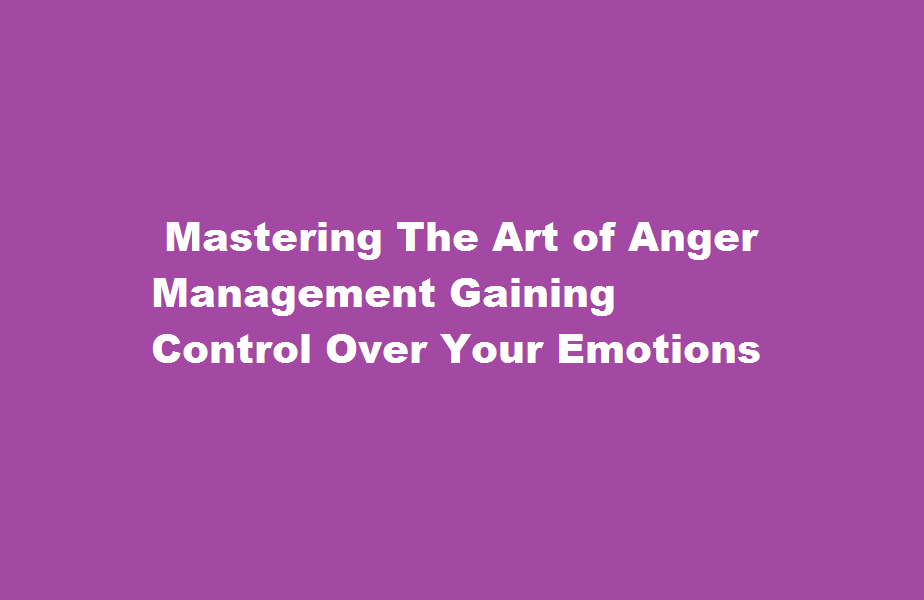Mastering The Art of Anger Management Gaining Control Over Your Emotions
3 min read
Introduction
Anger is a powerful emotion that can often lead to negative consequences if not managed properly. Learning to control anger is an essential skill that can improve our relationships, overall well-being, and productivity. In this article, we will explore effective strategies and techniques to gain control over anger, helping you develop a healthier and more balanced emotional state.
Understanding Anger
Anger is a natural human response to perceived threats, injustice, or frustration. It can manifest in various ways, from mild irritation to explosive rage. Recognizing the triggers and understanding the underlying causes of your anger is the first step toward gaining control over it. It is crucial to differentiate between the emotion itself and the behaviour that stems from it.
Pause and Reflect
When confronted with anger, take a moment to pause and reflect before reacting. This allows you to regain control over your emotions and respond thoughtfully rather than impulsively. During this pause, focus on deep breathing and centering yourself.
Identify Triggers and Patterns
Become aware of the situations, events, or people that frequently trigger your anger. By identifying these triggers, you can proactively prepare yourself mentally and emotionally, thus reducing the likelihood of becoming overwhelmed by anger.
Practise Emotional Regulation Techniques
Emotional regulation techniques are powerful tools to manage anger. Deep breathing exercises, meditation, and progressive muscle relaxation can help calm the body and mind, promoting a more composed state. Engaging in regular physical exercise, such as yoga or jogging, also aids in releasing built-up tension.
Effective Communication
Anger often arises from miscommunication or unexpressed emotions. Learning effective communication skills can prevent misunderstandings and diffuse potential conflicts. Practise active listening, express your thoughts and feelings assertively, and be open to constructive dialogue.
Develop Empathy and Understanding
Cultivating empathy and understanding towards others can significantly reduce anger. Put yourself in the shoes of the other person, considering their perspective and intentions. Recognize that everyone experiences emotions differently, and responses may not always align with your expectations.
Seek Support
If anger becomes a persistent problem, consider seeking support from a therapist or counsellor. Professional guidance can provide valuable insights and tools tailored to your specific needs, aiding in anger management and personal growth.
Practice Self-Care
Engaging in self-care activities helps promote emotional well-being and reduces the likelihood of anger. Prioritise activities that bring you joy, such as hobbies, spending time in nature, or connecting with loved ones. Taking care of your physical health through proper sleep, nutrition, and exercise also contributes to emotional balance.
Conclusion
Anger is a natural and powerful emotion, but it is crucial to learn how to manage it effectively. By pausing and reflecting, identifying triggers, practising emotional regulation techniques, improving communication, developing empathy, seeking support, and practising self-care, you can gain control over anger and live a more harmonious and fulfilling life.
Read Also : Managing Mood Swings Strategies for Emotional Balance






